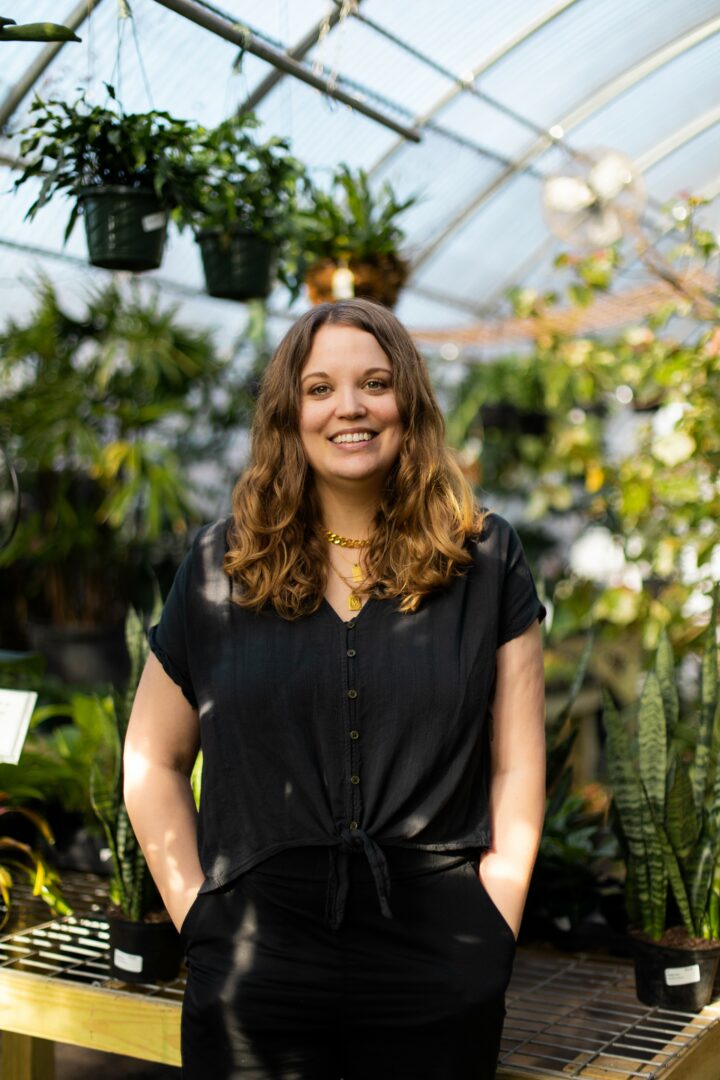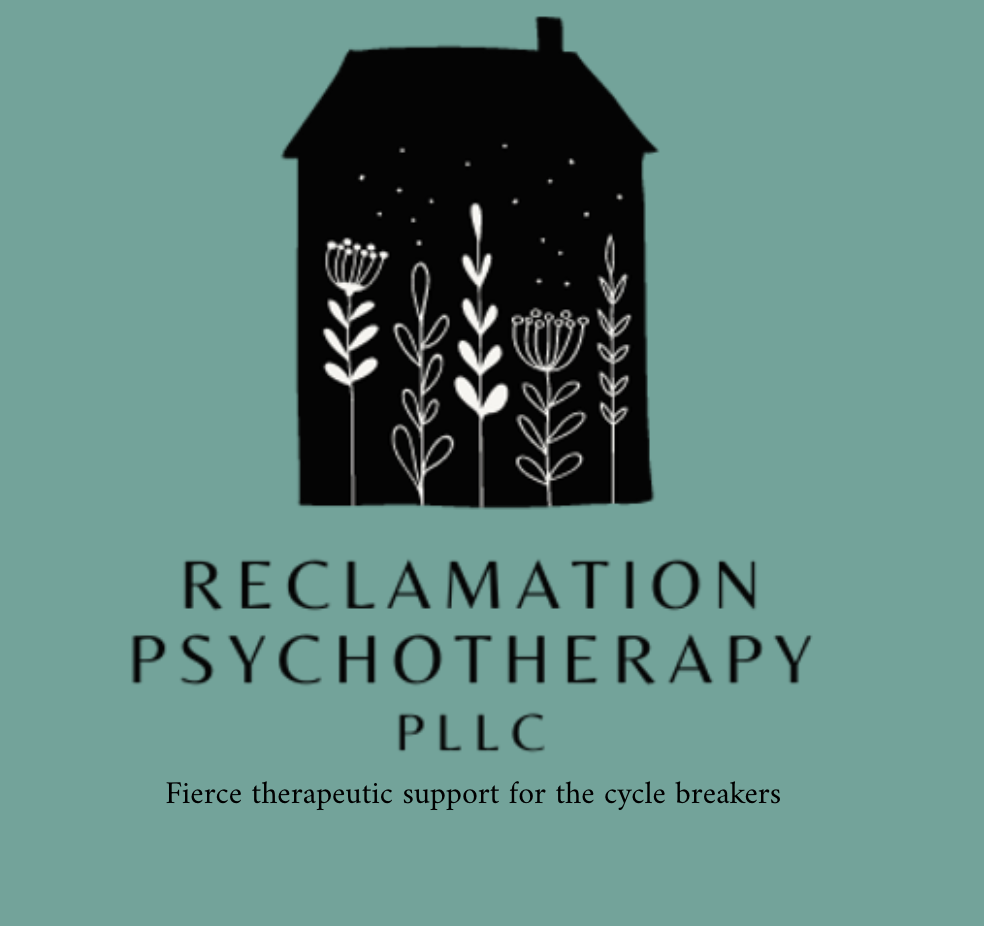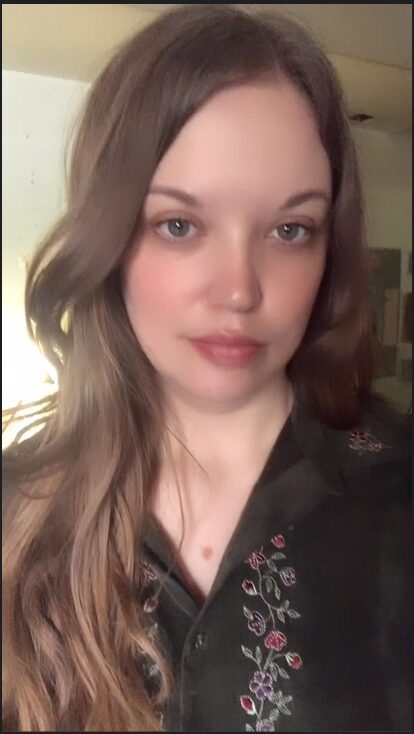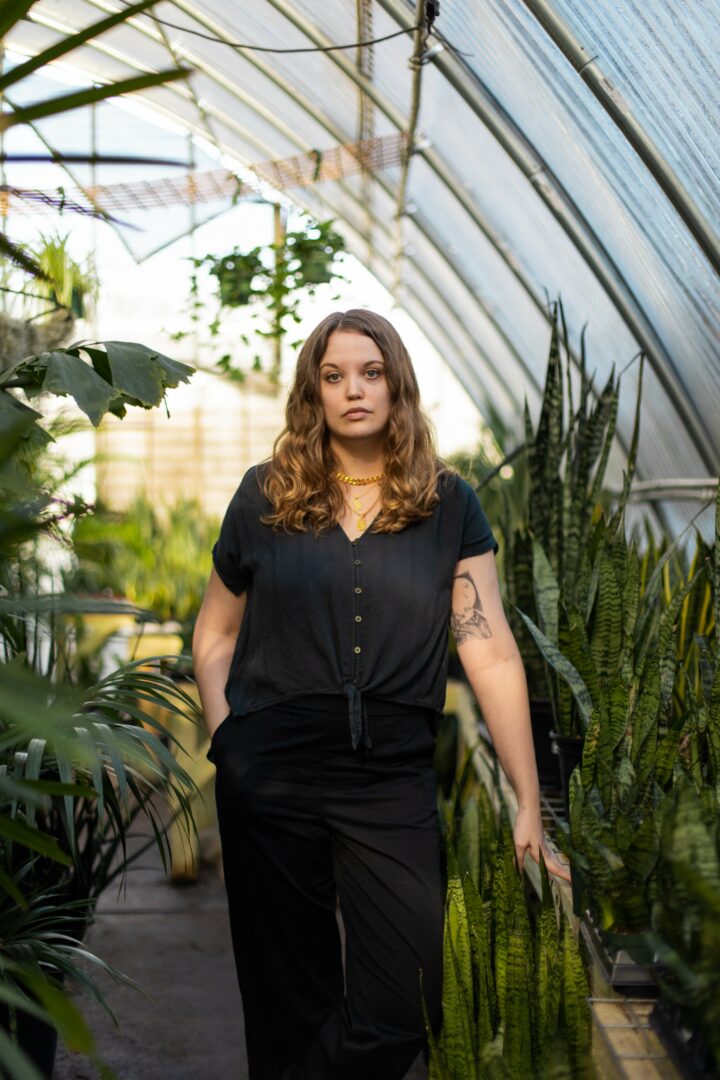We were lucky to catch up with Megan Moon recently and have shared our conversation below.
Hi Megan, thank you so much for opening up with us about some important, but sometimes personal topics. One that really matters to us is overcoming Imposter Syndrome because we’ve seen how so many people are held back in life because of this and so we’d really appreciate hearing about how you overcame Imposter Syndrome.
I didn’t! haha. For some of us, I don’t know that imposter syndrome is ever something that fully goes away, as much as it is something we change our relationship to. For example, I am queer, late diagnosed Audhd, grew up in poverty, and live with chronic pain and illness sooooo the social standard was not built for me. The societal definitions of success never reflect me. I have always been on the outside in some capacity so in many ways the script that many of us are supposed to follow to be successful got thrown out for me a long time ago. I had to create my own. If you are a woman, a person of color, queer, are disabled etc. OF COURSE you feel like an imposter in a world or a field that is dominated by people who have more privilege than you. You look around and don’t see yourself reflected. So when I have that feeling of like “I don’t belong here” I remind myself firstly, “girl you never have” haha and that is part of why it is amazing that you are here despite that. And secondly, I remind myself that I don’t actually want to. It wouldn’t be authentic for me and I would have to deny parts of myself. While it is difficult to not fit the status quo or feel reflected in it, it is also a beautiful thing, because we so desperately need people with different lived experiences in fields that have been dominated by the most privileged. I am a therapist and work with clients who have experienced childhood trauma and many of my clients are nuerodivergent as well. The relief my clients express that I understand parts of their lived experience because I had to navigate similar challenges is immense. The things about me that made me feel like an imposter in the world are now the very reason that my clients feel seen and reflected-many for the first time. We need different. We need authenticity, We need weird and I don’t know if ya’ll have noticed but the status quo is boring anyway.

Appreciate the insights and wisdom. Before we dig deeper and ask you about the skills that matter and more, maybe you can tell our readers about yourself?
Sure. My name is Megan Moon. I am a queer and neurodivergent relational trauma therapist in Texas and the owner of Reclamation Psychotherapy. I work with adults who have experienced childhood trauma within their family of origin. The majority of my clients are adult children of emotionally immature parents who experienced emotional neglect and abuse in childhood and are wanting to make sense of it all and how it continues to impact them. A common way this shows up for them is people pleasing and/or hyperindependence. Many of my clients have complex-ptsd and are late diagnosed Autistic, ADHD or both. I am also working with teens 16+ these days and really enjoying it. I love my work which I never thought I would say. I really struggled in traditional workplaces, just not a fan of the office life, but being a therapist is my favorite thing and I cannot imagine doing anything else. I feel really grateful to have found work that I love because oof capitalism is kind of a nightmare.
People often say to me that they cannot imagine being a trauma therapist and hearing such difficult things so often, but I don’t feel that way. Yes, I sit with clients in their most painful experiences and am deeply impacted by those things and care deeply for my clients, but I feel honored to be with them in the hard stuff. I get to witness deep healing happening all of the time as well. I get to see hopelessness slowly turn into relief and hope. I get to see clients reconnect with who they are outside of the survival mechanisms they developed in childhood to stay safe. I get to see clients connect to their righteous anger and start to set boundaries and take up more space in the world. I can’t imagine something more beautiful to be a part of.
I am currently creating a support group people who have chosen to go no contact with a harmful or abusive family member. I hear all of the time from my individual clients how isolated and alone they feel in their experience and there is also so much shame in feeling rejected by your family. I know getting folks in the same room together could really reduce that feeling of isolation and create community, so that is my goal right now. There is more information about that on my website for anyone interested reclamationpsychotherapy.info

Looking back, what do you think were the three qualities, skills, or areas of knowledge that were most impactful in your journey? What advice do you have for folks who are early in their journey in terms of how they can best develop or improve on these?
Hmmm I would say:
my sensitivity
my own therapeutic work
internal family systems (IFS)
I am very sensitive. Meaning I have a really sensitive nervous system, I feel things deeply and complexly, and I have very high empathy. Growing up these were things that I felt overwhelmed by because I had no understanding of how to accommodate myself. Simultaneously, I grew up in a family system that treated my sensitivity as a burden. When bringing my feelings to my family, my sensitivity was often used as a reason for them to evade accountability for harm they were causing. I think a lot of us know this phrase well “You are just being sensitive.”
Now that I understand my sensitivity as a strength that needs protection I recognize it as one of my greatest skills. My sensitivity is how I am able to connect with my clients, my keen pattern recognition is how I am able to help them connect dots and choose new ways of being that honor who they are, and my deep empathy creates a safe and affirming therapeutic relationship for my clients. I know now how to take care of my sensitivities which is so necessary when you are sensitive. I allow myself sensory accommodations such as wearing Loop earplugs in public to reduce noise overwhelm, and I always rock large dark sunglasses in buildings with florescent lighting because ew. I also have boundaries around my energy and say no a lot more than I used to to protect my capacity.
Secondly, I have been in my own therapy for 15 years and feel that this is foundational to how I show up for my clients as a therapist. It is so important to feel what it is like to be a client before and during being a therapist. I have learned so much from doing my own healing work and always list it under “trainings” because lived experience is some of the best training that we have.
Lastly, I incorporate a therapeutic modality in my work with clients called Internal Family Systems or IFS. Let me take a deep breath so that I don’t just geek out for hours about it. IFS is my favorite. There is a great book called No Bad Parts for anyone who wants to get a sense of what it is like. I find even just reading the book is a healing experience for a lot of people.
IFS essentially recognizes that we all have parts inside of us that were developed to help us navigate childhood and life. If we listen closely, it is in a lot of our language already. We often say “a part of me wants to leave him, but another part of me doesn’t want to lose him.” In session, we hold space for all of your parts and get curious about the role that each part has so that we essentially become a safe container for every part of us, give every part a chance to speak, and make choices from a place of Self. For example, we can have parts of us that keep us safe by never being vulnerable. This part makes sense. It was likely created because being vulnerable with others led to more harm. Vulnerability is an essential part of being human and having meaningful connections however. The result of intimately getting to know the part of you that had to hid their tenderness and vulnerability and validating their experience is often that we can then ask that part to step back in moments where they want to protect us so that we can connect with safe people. It is a beautiful thing to witness and I find reduces so much of the shame and stuck-ness that is so central to trauma.

Tell us what your ideal client would be like?
I love working with adult women and lgbtq+ folks who are wanting support to navigate healing from complex trauma in childhood. Some of the most common childhood experiences I work with are emotional neglect, having a parent who struggled with addiction or mental health, emotionally immature parents, and/or adult children of a narcissistic parent. I also love working with people pleasers and people who are hyper-independent. These are often the survival mechanisms we develop in a childhood where our parent/s were not emotionally available. And I also love working with late diagnosed autistic and adhd folks. The majority of my caseload falls into that category. The intersection of c-ptsd and growing up undiagnosed is a passion of mine.
Contact Info:
- Website: https://www.reclamationpsychotherapy.info/
- Instagram: @relationaltraumarecovery
- Other: https://linktr.ee/reclamationpsychotherapy

Image Credits
Photographs by Caitlin Rounds caitlinrounds.com
so if you or someone you know deserves recognition please let us know here.




